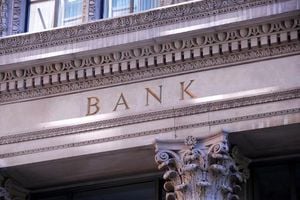Fuel prices across Brazil are set to rise beginning February 1, 2025, as the government implements changes to the Imposto sobre Circulação de Mercadorias e Serviços (ICMS) and as Petrobras announces adjustments to its own pricing.
Consumers will notice higher costs at the pump, with the price of gasoline increasing by R$ 0.10 per liter, now costing R$ 1.47 due to the ICMS increase. Meanwhile, diesel prices will see a smaller adjustment but still significant, with an increase of R$ 0.06 per liter bringing the ICMS to R$ 1.12.
The adjustments were announced by the Confaz (Conselho Nacional de Política Fazendária), a council responsible for tax oversight among Brazilian states. The decision reflects efforts to promote tax fairness and align fuel pricing with international market dynamics. "These adjustments reflect the commitment of the states to promote a balanced, stable, and transparent fiscal system," stated Confaz.
Petrobras, Brazil's state-owned oil company, has also adjusted its fuel prices, raising the cost of diesel for distributors by R$ 0.22 per liter. This marks the first increase from the company since December 2023, when prices had previously decreased. Consequently, the average price for diesel at the pump is estimated to rise and could reach approximately R$ 6.40 or higher across various states.
The price hike is not isolated to diesel; all major fuel types—gasoline, ethanol, and biodiesel—will rise. The combined effects of the new tax rates and Petrobras's pricing strategy mean consumers could see the average resale price for gasoline range from R$ 6.29 for standard types up to R$ 6.68 for premium variations. These changes come against the backdrop of last year's national inflation rate, where gasoline significantly contributed to the overall increase.
Recent economist assessments indicate these new prices could contribute to rising inflation. With diesel being integral to freight and transport costs, it is expected to influence prices on various consumer goods and services. Specifically, economist Fábio Romão from LCA Consultores predicts general inflation to increase by approximately 0.26 percentage points as consequences of the fuel price adjustments filter through the economy.
Experts suggest the impact on transport costs will be particularly noteworthy as trucking firms adjust their rates to accommodate higher fuel expenses. "The diesel price increase will likely be felt across multiple sectors, impacting everything from grocery prices to service charges," Romão added.
These price adjustments come at a significant time, as the government looks to maintain fiscal health amid fluctuational global oil markets. The last substantial fuel price rise occurred under the previous administration, leading to increased political pressures for the current government to manage fuel prices effectively.
Despite the price hikes, there is some relief for consumers as the ICMS on liquefied petroleum gas (GLP) used for cooking is expected to decrease slightly, from R$ 1.41 to R$ 1.39 per kilo. This change highlights the complexity of fuel pricing, where some categories might experience different trends simultaneously even on the same day of policy changes.
Overall, February 1, 2025, marks the beginning of new challenges for Brazilian consumers as they face increased fuel prices driven by both newfound taxation policies and market adjustments from Petrobras. Riding on the back of these price modifications, many will be left to navigate the rising costs of daily living, magnifying the pressure on household budgets.
Looking forward, the Brazilian government and state agencies must keep watch on both domestic and international markets to help stabilize these fuel prices and curb the impact on consumers as economic conditions evolve.
Fuel prices, once again, are at the forefront of discussions among policymakers, industry stakeholders, and everyday Brazilians, signifying a persistent concern within the broader scope of economic governance.



